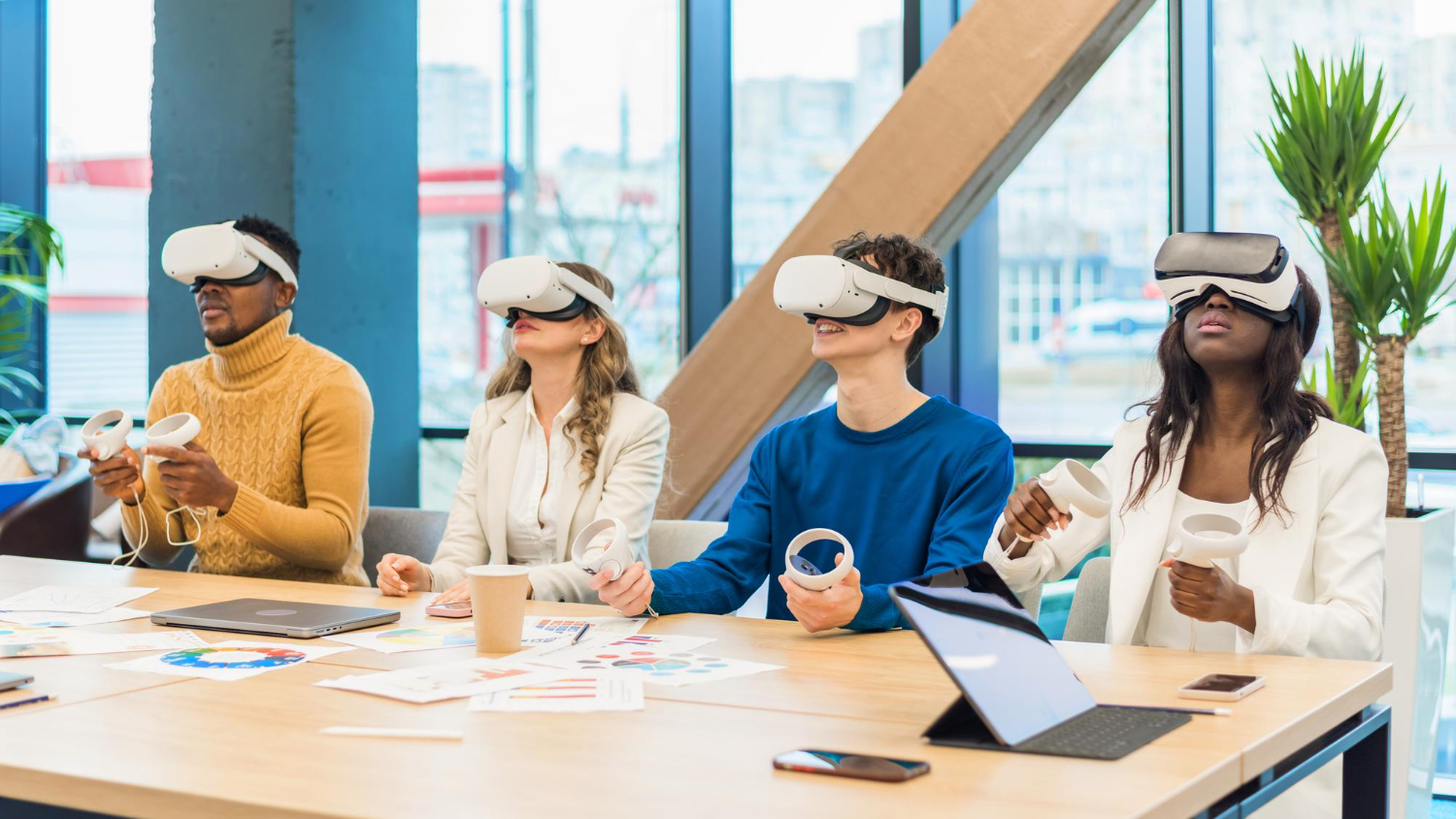Take a tech-friendly trip down memory lane circa 2002: Napster filed for bankruptcy months before the Linkedin.com domain name was created. The minds at M.I.T. sent the Roomba across household floors while NASA got the wheels moving on a different type of ground-based robot: MARS Rovers.
It’s hard to believe how dramatically the landscape of technology has changed since the dawn of the millennium. Even the software and hardware created from 2002-2011 and from 2012-2022 can feel generations removed from their parent-like concepts. Case in point: wireless wearable technology like Fitbit allowed software to engage with us in the real world then virtual reality encouraged us to engage with technology in the virtual world.
From AR to AI and so many innovative inventions in between, let’s take a look at some of the hardware and software created in the last twenty years that has impacted the tech world—and the entire world—in profound ways.
Cloud-Based Storage
A millennial nightmare, summed up in a single realization: forgetting to click “save” on a Microsoft Word document before exiting the program. Students and professionals alike dreaded the scenario. Auto-save was helpful, as was document recovery protocols, and there’s no denying that flash drives saved the day for countless individuals who found themselves helpless during a hard drive crash.
But cloud-based storage changed the data-saving game in the most extreme way.
Not only is your data accessible at any time and protected by the latest IT securities, but remembering to save data has become a thing of the past. Automatic and manual synching ensures data is backed up consistently. The ability to edit living files in real-time with other users and have all changes saved and recorded instantaneously is a vital resource that few professionals could function without today.
Blockchain
Millennials know all too well the dangers of the internet; their indoctrination to the world wide web occurred as they matured into adults. Instead of facing scams, data breaches, and other threats first-hand, many watched instead as the generation preceding them fell victim to fraud and other malicious acts.
It comes as no surprise, then, that blockchain technology has grown immensely in popularity since the first blockchain implementation in 2008. With companies like IBM investigating ways of integrating blockchain ledgers into their cloud-based applications, blockchain technology will revolutionize how data is stored, secured, and, most importantly, verified as legitimate.
Mobile Operating Systems
One would be remiss to not mention social media as one of the grandest inventions of the last twenty years, but the unsung hero in social media’s dominance—as well as the driving factor in the success of many other applications—is truly the rise of mobile operating systems.
While the IBM Simon Personal Communicator of the 1990s was the first conceptual smartphone, the smartphones of today would be nothing without their mobile operating systems. iOS, Windows Mobile, Android, WebOS, and others have paved the way for portable computing. Myspace and AOL Instant Messenger prove that social media would still thrive without portability, but it’s the mobile operating systems that have accelerated and amplified social media usage to unfathomable levels. It’s almost impossible to imagine a world without Facebook, Instagram, TikTok, and LinkedIn commanding so much of the average user’s attention.
The mobile operating system hasn’t replaced the personal computer, but it has revolutionized the ways people accomplish their daily tasks via the internet. Mobile operating systems keep us connected to the world wherever we go. It’s more than a computer in our pocket; it’s all of our resources, desires, and necessities all readily available with the tap of a finger.
iPhone
Apple is an elite company whose contributions to the world of technology are immense. Inventing the iPod and the iPad are both significant accomplishments, though it’s hard to argue that there was no product more revolutionary in the millennium than the release of the iPhone. Its operating system, functionality, and wealth of applications need not be discussed; the iPhone’s most profound impact transcended technology itself and integrated the device into mainstream culture.
An iPhone is as much a personal device as it is a personal statement. Consumers continue to covet the latest iPhone release, even if its technological specifications do not exceed the capabilities of similar devices from other brands. Android and Google both have significant followings, but history will show that it’s Apple’s iPhone that captured the zeitgeist of the early millennium.
Self-Driving Car
AI and machine learning are inarguably the future of technology, and the self-driving car is perhaps the most important example of why this tech will revolutionize the world. Driverless technology has the potential to change the way the world relies on transportation-based services. It’s beyond moving a single person from place to place; autonomous vehicles on land, sea, and eventually air, could restructure the global supply chain in ways that reduce energy output and limit the need for manual operation.
Tech in Twenty Years
The question isn’t if these technologies will endure for another twenty years, but rather, how they will interact with the century’s hardware and software that has yet to be introduced.
Technology is ultimately nothing more than a tool which requires brilliant, creative, and disciplined minds to yield properly.
Nick Dauk | Contributing Writer




















